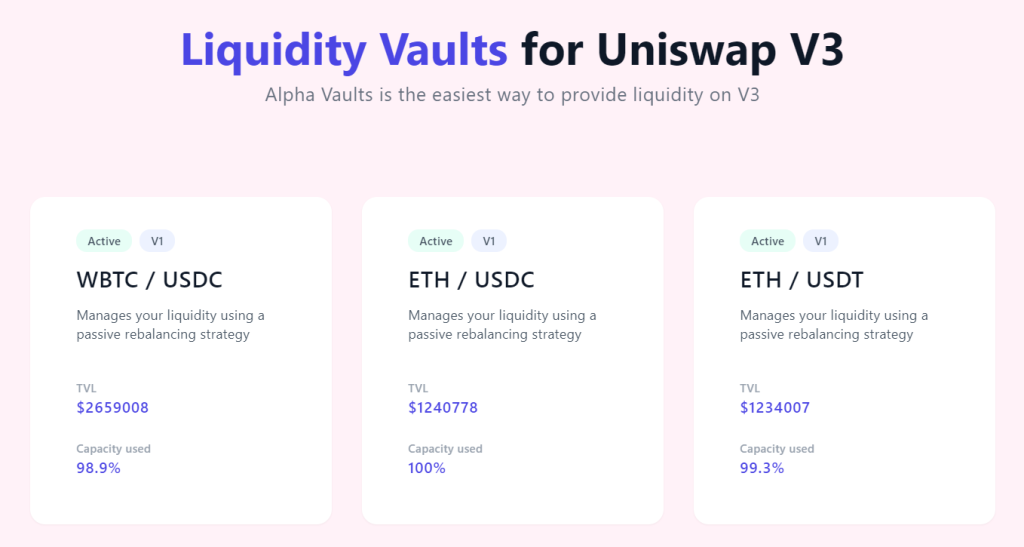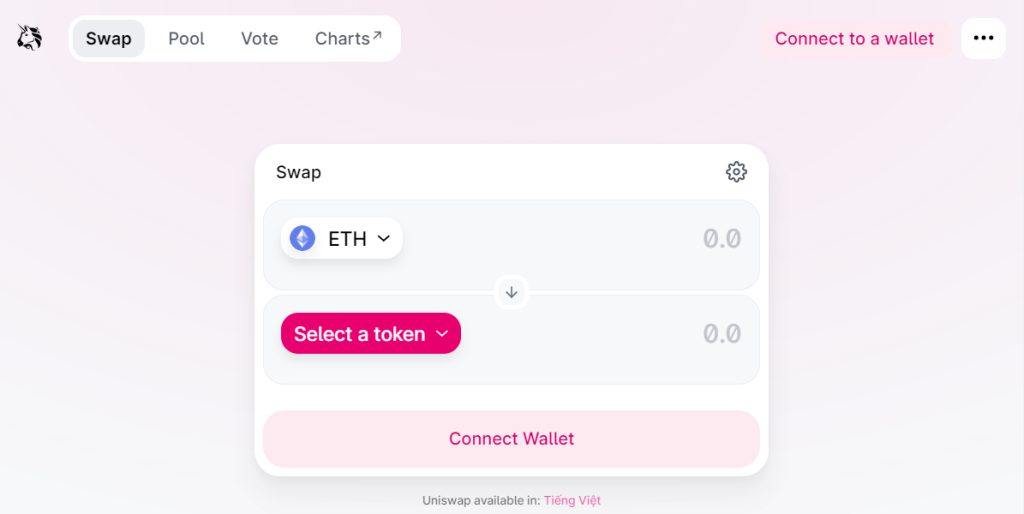
Uniswap tokens can be stored in various types of wallets, including hardware wallets for maximum security, software wallets for a balance of security and convenience, web wallets for easy access, mobile wallets for on-the-go management, and paper wallets for offline, long-term storage.
Understanding Uniswap and Its Tokens
What is Uniswap?
Uniswap is a decentralized exchange (DEX) protocol built on the Ethereum blockchain. It allows users to swap ERC-20 tokens directly from their wallets without the need for a centralized intermediary. This peer-to-peer system leverages smart contracts to facilitate automated trading, ensuring transparency and security. Uniswap’s popularity stems from its innovative approach to liquidity provision, where liquidity providers (LPs) contribute assets to liquidity pools and earn fees from trades.
Types of Uniswap Tokens
Uniswap supports a wide range of tokens, primarily ERC-20 tokens, which are the standard for fungible tokens on the Ethereum blockchain. Here are the main types of tokens you can interact with on Uniswap:
- Governance Tokens: These tokens, such as UNI, allow holders to participate in protocol governance. Holders can vote on proposals that affect the development and direction of Uniswap.
- Liquidity Provider (LP) Tokens: When users provide liquidity to a Uniswap pool, they receive LP tokens representing their share in the pool. These tokens can be staked or redeemed for the underlying assets.
- Stablecoins: Tokens like USDC, USDT, and DAI are stablecoins pegged to the value of fiat currencies. They are commonly traded on Uniswap for their stability.
- Wrapped Tokens: These are tokens that represent other cryptocurrencies (e.g., WBTC for Bitcoin) and can be traded on the Ethereum network. Wrapped tokens bridge assets from different blockchains to the Ethereum ecosystem.
- Utility Tokens: Various projects issue utility tokens for specific use cases within their ecosystems. These tokens can be traded on Uniswap for other ERC-20 tokens.

Choosing a Wallet for Uniswap Tokens
Key Factors in Choosing a Wallet
Selecting the right wallet for storing your Uniswap tokens involves considering several key factors. Each factor plays a crucial role in ensuring the security, accessibility, and usability of your tokens.
- Compatibility: Ensure the wallet supports ERC-20 tokens and is compatible with Uniswap. Most Ethereum wallets meet this criterion, but it’s essential to verify.
- User Experience: A user-friendly interface makes managing your tokens easier. Look for wallets that offer intuitive navigation and clear instructions for transactions.
- Access to Private Keys: Choose a wallet that provides you with full control over your private keys. This ensures that you have complete ownership of your tokens.
- Backup and Recovery: Effective backup and recovery options are vital. Look for wallets that offer seed phrases or other recovery mechanisms to restore your funds if you lose access.
- Integration with DeFi: If you plan to engage in decentralized finance (DeFi) activities beyond Uniswap, consider wallets that integrate seamlessly with various DeFi platforms and protocols.
Security Considerations
Security is paramount when choosing a wallet for your Uniswap tokens. Different wallet types offer varying levels of security, and understanding these differences is crucial.
- Hardware Wallets: These wallets provide the highest level of security by storing your private keys offline. They are immune to online hacking attempts and are ideal for long-term storage of significant amounts of tokens.
- Software Wallets: Software wallets installed on your computer or mobile device offer a good balance between security and convenience. They use encryption to protect your private keys but can be vulnerable to malware.
- Web Wallets: While web wallets are highly accessible and user-friendly, they are generally less secure because your private keys are stored online. Use these wallets for small amounts or short-term storage.
- Multi-Signature Wallets: These wallets require multiple private keys to authorize a transaction, providing an additional layer of security. They are especially useful for collaborative environments or joint accounts.
- Regular Updates: Choose wallets that receive regular updates from their developers. Frequent updates often include security patches and new features that enhance protection.
Hardware Wallets: The Ultimate Security
Advantages of Hardware Wallets
Hardware wallets are widely regarded as the most secure option for storing Uniswap tokens and other cryptocurrencies. Here are some key advantages:
- Offline Storage: Hardware wallets store private keys offline, making them immune to online hacking attempts, malware, and phishing attacks.
- Enhanced Security: These wallets often come with advanced security features, such as secure elements and PIN protection, to safeguard your assets even if the device is lost or stolen.
- Backup and Recovery: Hardware wallets provide backup options through seed phrases, allowing you to recover your funds if the device is damaged or lost.
- Tamper-Proof Design: Many hardware wallets are designed to detect physical tampering and have mechanisms to protect against unauthorized access.
- User Control: You retain full control over your private keys, ensuring that only you can access and manage your Uniswap tokens.
Popular Hardware Wallets
Several hardware wallets are popular among cryptocurrency users due to their robust security features and user-friendly designs. Here are some of the top choices:
- Ledger Nano S and Nano X: Ledger’s Nano S and Nano X are among the most trusted hardware wallets. They support a wide range of cryptocurrencies, including Uniswap tokens, and offer secure offline storage with a user-friendly interface.
- Trezor One and Model T: Trezor wallets are known for their high security and ease of use. The Trezor One is a more affordable option, while the Model T offers a touchscreen and additional features.
- KeepKey: KeepKey is another popular hardware wallet that offers secure offline storage for your cryptocurrencies. It features a large screen for transaction verification and a simple setup process.
- SafePal S1: SafePal S1 is a relatively new but well-regarded hardware wallet. It offers robust security features, including air-gapped signing and self-destruct mechanisms, and supports a wide range of tokens.

Software Wallets: Convenience and Accessibility
Benefits of Software Wallets
Software wallets offer a blend of security, convenience, and accessibility, making them a popular choice for managing Uniswap tokens and other cryptocurrencies. Here are the key benefits:
- Ease of Use: Software wallets often feature user-friendly interfaces, making them accessible even for beginners. They typically offer straightforward setup processes and intuitive navigation.
- Accessibility: Being available as desktop or mobile applications, software wallets allow you to access your tokens from anywhere with an internet connection, facilitating quick transactions and easy management.
- Integration with DeFi: Many software wallets are designed to integrate seamlessly with decentralized finance (DeFi) platforms, enabling users to interact with Uniswap and other protocols directly from the wallet.
- Real-Time Updates: Software wallets often provide real-time updates on your portfolio, including current token prices and market trends, helping you make informed decisions.
- Backup and Recovery: Most software wallets offer backup options such as seed phrases, ensuring you can recover your funds if you lose access to your device.
Recommended Software Wallets
Several software wallets are highly recommended for their features, security, and ease of use. Here are some top choices:
- MetaMask: MetaMask is one of the most popular Ethereum wallets, widely used for its seamless integration with Uniswap and other DeFi platforms. It is available as a browser extension and mobile app, offering a convenient and secure way to manage your tokens.
- Trust Wallet: Trust Wallet is a mobile wallet that supports a wide range of cryptocurrencies, including Uniswap tokens. It is known for its user-friendly interface, strong security features, and compatibility with various DeFi platforms.
- Exodus: Exodus is a desktop and mobile wallet that offers an intuitive interface and supports multiple cryptocurrencies. It includes built-in exchange features and integrates with hardware wallets for enhanced security.
- MyEtherWallet (MEW): MEW is a web-based wallet that provides extensive features for managing Ethereum and ERC-20 tokens. It offers a user-friendly interface, strong security measures, and compatibility with hardware wallets.
- Coinbase Wallet: Coinbase Wallet is a mobile wallet that allows you to manage your tokens and interact with DeFi platforms like Uniswap. It offers a secure environment, easy setup, and integration with the Coinbase exchange for added convenience.

Web Wallets: Easy Access, Lower Security
Pros and Cons of Web Wallets
Web wallets are a popular choice for their ease of access and user-friendly interfaces. However, they also come with some security trade-offs. Here are the main pros and cons:
Pros:
- Accessibility: Web wallets can be accessed from any device with an internet connection, making them extremely convenient for quick transactions and on-the-go management.
- User-Friendly: They often feature simple and intuitive interfaces, making them suitable for beginners and those looking for hassle-free management of their tokens.
- Integration with DApps: Many web wallets are designed to integrate seamlessly with decentralized applications (DApps), including Uniswap, allowing users to interact with these platforms directly from the wallet.
- No Installation Required: Since web wallets are accessed through a web browser, there is no need to install any software, saving time and storage space on your devices.
Cons:
- Lower Security: Web wallets store private keys online, making them more vulnerable to hacking, phishing attacks, and malware compared to hardware and software wallets.
- Dependence on Internet Connection: Access to your tokens depends on having a stable internet connection, which might not always be available.
- Centralized Risks: Some web wallets are managed by centralized entities, which can introduce risks related to trust and control over your assets.
- Limited Control: Users may have less control over their private keys and wallet backups compared to other types of wallets.
Top Web Wallets for Uniswap
Despite their lower security compared to hardware and software wallets, several web wallets are popular for their ease of use and integration with Uniswap. Here are some top choices:
- MetaMask: Although primarily known as a browser extension, MetaMask also functions as a web wallet. It offers seamless integration with Uniswap and other DeFi platforms, providing a convenient way to manage your tokens directly from your browser.
- MyEtherWallet (MEW): MEW is a well-established web wallet for managing Ethereum and ERC-20 tokens. It offers a user-friendly interface and supports direct interaction with Uniswap, allowing users to trade and manage their tokens easily.
- Trust Wallet (Web Interface): While Trust Wallet is primarily a mobile wallet, it also offers a web interface that provides easy access to your tokens. It supports a wide range of cryptocurrencies and integrates well with DeFi platforms like Uniswap.
- Coinbase Wallet: Coinbase Wallet provides a web interface that allows users to manage their tokens and interact with Uniswap. It offers a secure environment backed by the reputable Coinbase brand, making it a reliable choice for web wallet users.
- Portis: Portis is a web wallet that focuses on simplicity and ease of use. It integrates seamlessly with Uniswap and other DApps, allowing users to manage their tokens and engage in DeFi activities directly from their web browser.

Mobile Wallets: Storing Uniswap on the Go
Why Choose Mobile Wallets?
Mobile wallets are an excellent option for users who need to manage their Uniswap tokens while on the move. Here are some key reasons to choose mobile wallets:
- Convenience: Mobile wallets provide the ability to access and manage your tokens from anywhere using your smartphone. This makes them ideal for users who need to conduct transactions or monitor their portfolio on the go.
- User-Friendly: Mobile wallets are designed with user experience in mind, offering intuitive interfaces that are easy to navigate, even for beginners.
- Security Features: Many mobile wallets incorporate advanced security features such as biometric authentication (fingerprint or facial recognition), PIN codes, and encryption to protect your assets.
- Integration with DeFi: Mobile wallets often support direct integration with decentralized finance (DeFi) platforms like Uniswap, allowing users to engage in trading, staking, and other DeFi activities seamlessly.
- Push Notifications: Mobile wallets can send push notifications for transaction confirmations, market updates, and security alerts, keeping you informed in real-time.
Leading Mobile Wallets
Several mobile wallets are highly regarded for their security, features, and ease of use. Here are some of the top mobile wallets for managing Uniswap tokens:
- Trust Wallet: Trust Wallet is a widely used mobile wallet that supports a broad range of cryptocurrencies, including Uniswap tokens. It offers a simple and secure way to manage your assets, with features like staking, DeFi integration, and a built-in DApp browser.
- MetaMask Mobile: MetaMask Mobile extends the functionality of the popular MetaMask browser extension to smartphones. It provides seamless integration with Uniswap and other Ethereum-based DApps, offering a secure and convenient mobile solution.
- Coinbase Wallet: Coinbase Wallet is a mobile app that allows users to manage their tokens and interact with DeFi platforms like Uniswap. It features a user-friendly interface, strong security measures, and direct integration with the Coinbase exchange.
- Exodus Mobile: Exodus Mobile offers a beautifully designed interface and supports multiple cryptocurrencies, including Uniswap tokens. It provides real-time market data, secure storage, and the ability to exchange assets directly within the app.
- Atomic Wallet: Atomic Wallet is a mobile wallet that supports a wide range of cryptocurrencies and offers features like atomic swaps, staking, and DeFi integration. It is known for its security and ease of use, making it a great choice for managing Uniswap tokens on the go.
- imToken: imToken is a feature-rich mobile wallet that supports Ethereum and other major blockchains. It offers secure storage, DeFi integration, and a built-in exchange, making it a versatile option for Uniswap users.

Paper Wallets: An Old-School Approach
How to Create a Paper Wallet
Creating a paper wallet for your Uniswap tokens involves a few careful steps to ensure security and reliability. Here’s a detailed guide:
- Select a Trusted Generator: Use a reputable paper wallet generator, such as MyEtherWallet (MEW) or WalletGenerator.net. Ensure that you access these tools via a secure connection.
- Download the Generator: For enhanced security, download the wallet generator’s HTML file and run it on a computer that is offline. Disconnecting from the internet prevents any possibility of online attacks.
- Generate Your Keys: Follow the instructions provided by the generator to create a new wallet. This process will yield a public key (for receiving tokens) and a private key (for accessing and sending tokens).
- Print the Wallet: Print the keys and any QR codes on a piece of paper. Use a reliable printer and high-quality paper to ensure the keys are clearly visible and durable.
- Store the Wallet Safely: Place the printed wallet in a secure location. Consider using a safe deposit box or a home safe. It’s wise to make multiple copies and store them in different locations to safeguard against loss or damage.
Safety Tips for Paper Wallets
Paper wallets provide high security, but they are susceptible to physical risks. Follow these tips to protect your paper wallet effectively:
- High-Quality Printing: Use a reliable printer and durable paper to print your wallet. This ensures longevity and readability.
- Keep Private Keys Secret: Never share your private key with anyone. The private key is crucial for accessing your tokens and must remain confidential.
- Physical Protection: Store your paper wallet in a safe environment, away from fire, water, and other potential hazards. Laminating the wallet can add an extra layer of protection.
- Avoid Digital Copies: Do not take digital photos or scans of your paper wallet. Digital copies can be compromised if your devices are hacked.
- Create Multiple Backups: Make several copies of your paper wallet and store them in different secure locations. This precaution helps ensure you have access to your tokens even if one copy is lost or damaged.
- Encryption for Digital Storage: If you must keep a digital backup, encrypt the file using strong encryption and store it securely offline. This adds an extra layer of security.